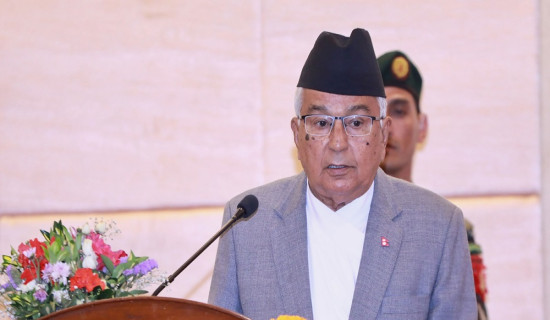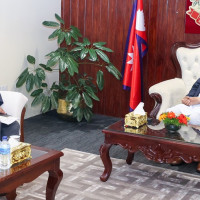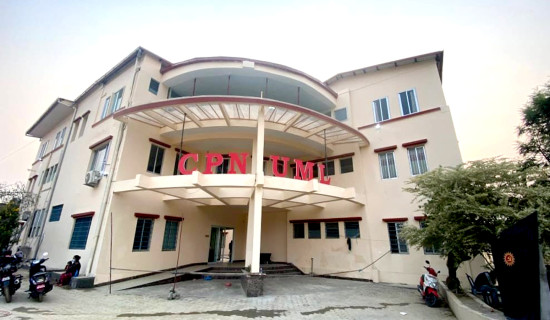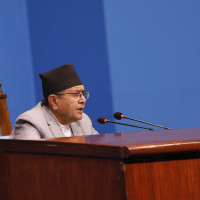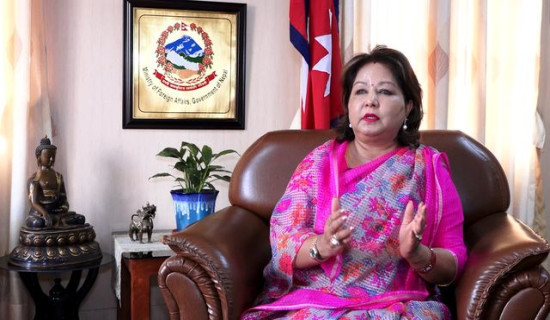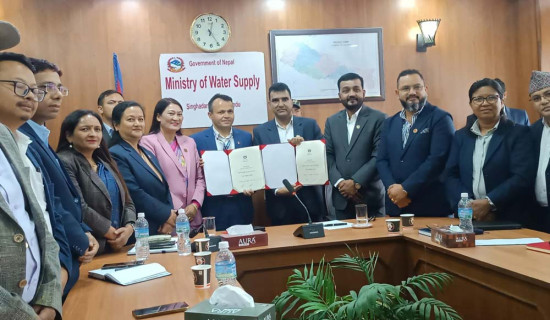- Saturday, 10 May 2025
Call For Connectivity
In his address to the sixth BIMSTEC summit on Friday, Prime Minister KP Sharma Oli highlighted a range of challenges facing the region of the Bay of Bengal and called for decisive action for collective progress on many fronts. The existential threat posed by climate change and the need for improved connectivity among member countries featured prominently in his speech. The PM also underscored how Nepal is dealing with the disproportionate impacts of climate change despite contributing negligibly to the crisis.
No doubt that the irreversible melting of the Himalayan glaciers sounds the death knell for the 1.1 billion people in the region who rely on the snowmelt water for life and livelihoods, from drinking water to agriculture. By doing so, the PM has successfully set the tone for the upcoming conference, Sagarmatha Sambad, which is due to be held in May in Kathmandu and is also to be centred on the issues related to climate change. Stating that the global order is being redefined, PM Oli said that, at this moment, BIMSTEC must not only navigate the changing tides but also seize the opportunity to reinvigorate the regional cooperation. These words underline the urgency of taking action before time runs out.
We are currently living at a time when geopolitics is upending international order, tariffs and retaliatory tariffs are set to dent the trade across international borders, countries are resorting to protectionism as a measure to ensure their own economic interests at the expense of other countries and attacks on cargo ships navigating through key canals have grown in frequency, among other global threats. All these have imperiled global trade, especially those involving long-haul transportation across oceans.
The global trade disruption that caused a dire shortage of daily necessities in the wake of the COVID-19 pandemic is a case in point. This exposed the world's vulnerability as a result of its overreliance on a handful of countries for the supply of almost everything, including daily necessities. It also laid bare the drawbacks of the practice of offshoring. To offset such supply chain disruptions, several Western countries are currently on a mission to "onshore" their supply, meaning that they are bringing the manufacturing near their homes.
In light of this fact, the BIMSTEC's emphasis on regional cooperation in a wide range of issues, including trade, for shared prosperity is not only indispensable but also an antidote to the issues facing international trade. As mentioned by the Prime Minister, by deepening partnerships among member countries in the region, they can effectively address a host of challenges – from ecology to economy, from trade tensions to technological disruptions, from changing climate to conflicts, and from pangs of pandemics to perils of polarisation.
The PM's stress on regional connectivity as a way to solve these plaguing problems – connectivity of markets as well as minds, connectivity of infrastructures as well as ideas, connectivity of culture as well as cyber – is essential. His calling for the implementation of the BIMSTEC Master Plan for Transport Connectivity and BIMSTEC Agreement on Maritime Transport Cooperation in a time-bound manner for mutual benefits, collective growth and shared prosperity highlighted Nepal's eagerness to act for the common good. But without accompanying concrete actions that fulfil the commitments made in the meeting, mere words don't mean much. Only when member states join hands for concrete actions can the pledges made be translated into reality.



